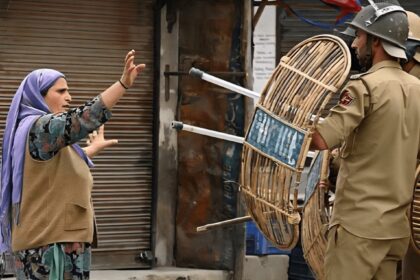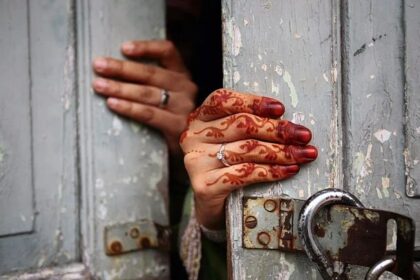A teacher once told us, “Hum sab aik naare ki maar hain.” At that time, I did not completely understand the depth of his words, but recently, I saw the last episode of the Pakistani drama serial Tann Mann Neel o Neel. It is safe to say that the audience wasn’t expecting such a brutal reality check; however, this was an essential mirror held up to our society.
Mob culture has been prevalent in our society for ages; however, people have only recently started talking about it. Taking justice into your own hands and committing the worst kind of injustice is extremely ironic.
Mob Culture and the Lahore Incident
Mob culture refers to people forming crowds and acting under the influence of strong emotions. Just recently, a woman in Lahore was attacked by an angry mob who mistook the Arabic print on her kurta for Quranic verses. According to the police officer who reached the site to rescue the woman, around 300 people had gathered outside the restaurant in which she was present.
Imagine the gullibility of this nation: 300 people could not have possibly seen the text on the woman’s kurta; however, they were ready to kill her after simply relying on hearsay. This is the level of irrationality in our society.
Despite this woman not being at fault at all, she was made to apologize publicly by our so-called guardians of faith. This is the reality of our society—we blame the victims and empower unfairness, injustice, and cruelty.
The Misuse of Religion

Our nation has made religion a joke; one clash of opinions, and you will be accused of blasphemy. These self-appointed moral police and guardians of faith are nothing but a shame to our society. Every religion, in its true spirit, promotes peace and justice; however, we find it convenient to mold cultures and religions to suit our own benefit.
A Nation Immune to Critical Thinking
This is not just extreme intolerance but also extreme ignorance and illiteracy. Our society raises individuals who act purely on emotions, without once using their brains. We forget that our words and actions have consequences.
Imagine being so gullible as a nation that if a stranger accuses someone in front of us, we won’t even pause to consider whether the person spreading the information is credible or not—we will believe them instantly. Of course, we as a nation think after we act.
The Thirst for Power
Apart from ignorance and illiteracy being key contributors to mob culture, another reason is this nation’s thirst for power. Whether it be the poor in general or women specifically, our so-called elite and not-so-manly men in our society simply crave dominance over others.
The moment someone dares to act with independence, their fragile egos get hurt. How dare someone speak up for what is right? How dare someone they perceive as inferior even have a voice? And then, we see people getting attacked on accusations like blasphemy, vulgarity, or immorality—when, in reality, our nation does not even understand the M of morality.

The Failure of Our Education System
Another major reason behind this issue is our flawed education system. We raise individuals who are excellent at rote learning, who will follow instructions in the name of intelligence and obedience, but we never teach them to question or think critically.
Students up to the university level in Pakistan are taught to write within the confines of prescribed headings and answer lengths. It does not matter what they write under those headings, as long as the page limit is met. These individuals grow up to become people who do not think for themselves, instead functioning on the collective ignorance of our society.
A Call for Change
It is high time that we start fostering critical thinking rather than letting baseless gossip turn into grave accusations. We need to reform our education system to encourage independent thought and discourage blind obedience to hearsay.
It is time to shift from emotional and impulsive reactions to rational discourse, from blind accusations to informed decision-making.
How many more lives will we destroy within the chaos of these crowds?
















